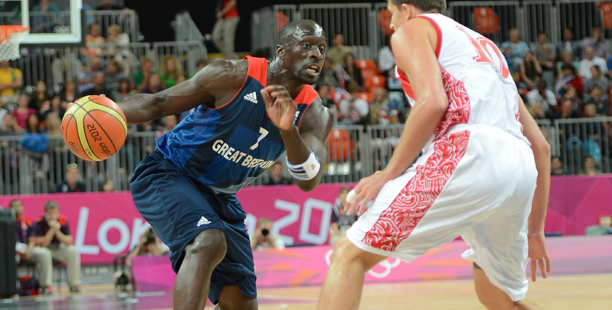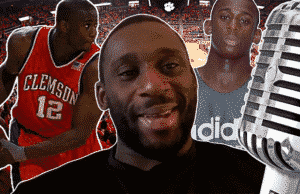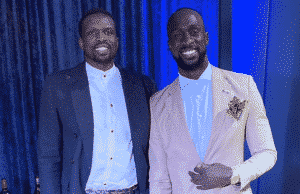Pops Mensah-Bonsu Came Close to Quitting Basketball After the Olympics

Pops Mensah-Bonsu has revealed that he was ready to quit basketball following the 2012 Olympics in London, in an interview with Slam n’ Roll.
The GB veteran has battled with injuries throughout his pro career and admitted briefly giving up on basketball after suffering a knee injury, which forced him to miss the final game victory over China at the London games.
“After what happened in the Olympics in London I told my fiance and my brother that I am done playing basketball,” he said. “I had enough. I felt bad. Some people work their whole lives to play in the Olympics and I played in the tournament in a place ten minutes away from where I grew up. To get hurt in a situation like that was so difficult for me to fathom. I questioned my faith. I questioned what I am doing. For almost a week to ten days I did not care for basketball. I had great contracts on the table, but I just did not want to play.”
The 6’9″ forward pulled himself up and refused to quit on the game, reflecting on all the setbacks he has previously bounced back from, including having had multi-year contracts fall through due to failed medicals.
“I sat one day and thought that giving up was easier than keep going. And I would not give up so easily. Yes, it was going to be difficult to bounce back but adversity does not build your character. It reveals it. You know, tough times do not last, but tough people do. So if anything happens as long I have the ability to get back to 100% I have no time to feel sorry for myself. I learned a long time ago that nobody is going to feel sorry for me. So when that happened I simply started my journey again. Every time after that, worked harder than the last time, I bounced back stronger. Generally I have learned to fight. I hurt my shoulder in 2011 and then I had one of my next (best) years with Besiktas. I had a setback with Maccabi, but I came back and played again. I failed the physical in Olympiacos and here we are now. If I decided to give up, you guys would not talk me now (laughs). These are all things that define me.
Mensah-Bonsu has made a name for himself playing all over the world, but would happily play in front of friends and family week in, week out, if things were different. Like other GB players before him, Mensah-Bonsu expressed a desire to play in his home country should the league’s profile increase to be able to provide a better level of competition and more money to pay better wages.
The number of GB stars playing abroad was a criticism from UK Sport when they removed the British Basketball programme’s funding.
“If we had a legitimate league where they could pay the players decent wages, I’d play in London,” he explained. “Why not play ten minutes from where I grew up? I lived in the U.S., but that is not my home. I’d love to play at my home so that my Mum and Dad could see me play.
“When I am done playing basketball this is something I want to focus my attention and work on – improving basketball in my country. It is going to take a lot of effort and more than myself but it is worth it.
“That’s another reason why I was so hurt in the Olympics because we had the opportunity to do something big. If we made it at least to the elimination round, people would re-consider their relation with the sport. People who never watched the sport, attended one game and then told me that it is one of the best things they have ever seen.”
Mensah-Bonsu also gave his opinion on the effects that funding has on basketball, with unfortunate consequences despite the sport’s popularity in the UK.
“It’s a big country and you would think there would be more emphasis on basketball, but there is not,” he said. “Basketball is the number one team sport in all of Great Britain amongst ethnic minorities. There are many basketball courts, but they are empty. The sad thing is that it is one of the least funded sports. It is all about that.
“This changed for the Olympics, but with us not getting to the next round the federation thought it was a failed attempt and they took the funds away. But these things do not happen right away, not even in a few years. It was a stepping stone, but they took it away. And when you do not show the players like Luol Deng and Joel Freeland that you want to invest and insure them, they will not come to play.”
To read the full wide-ranging interview, click here.






Pingback: Olympic links: 3 March, 2015 | Frontier Sports